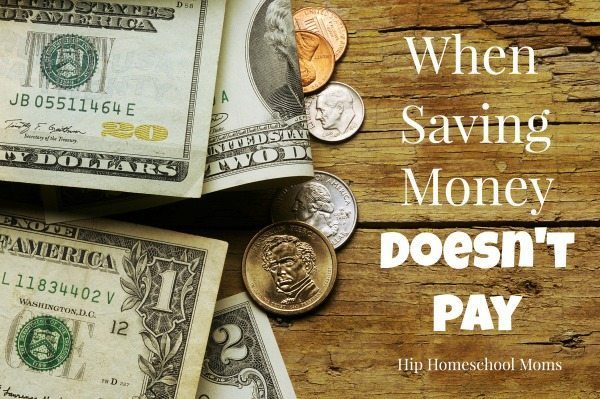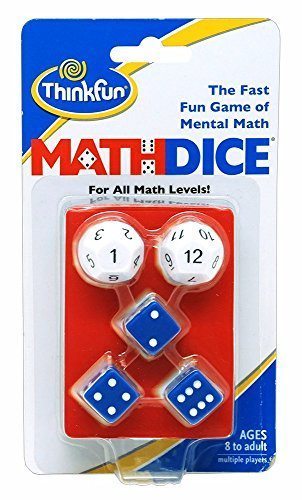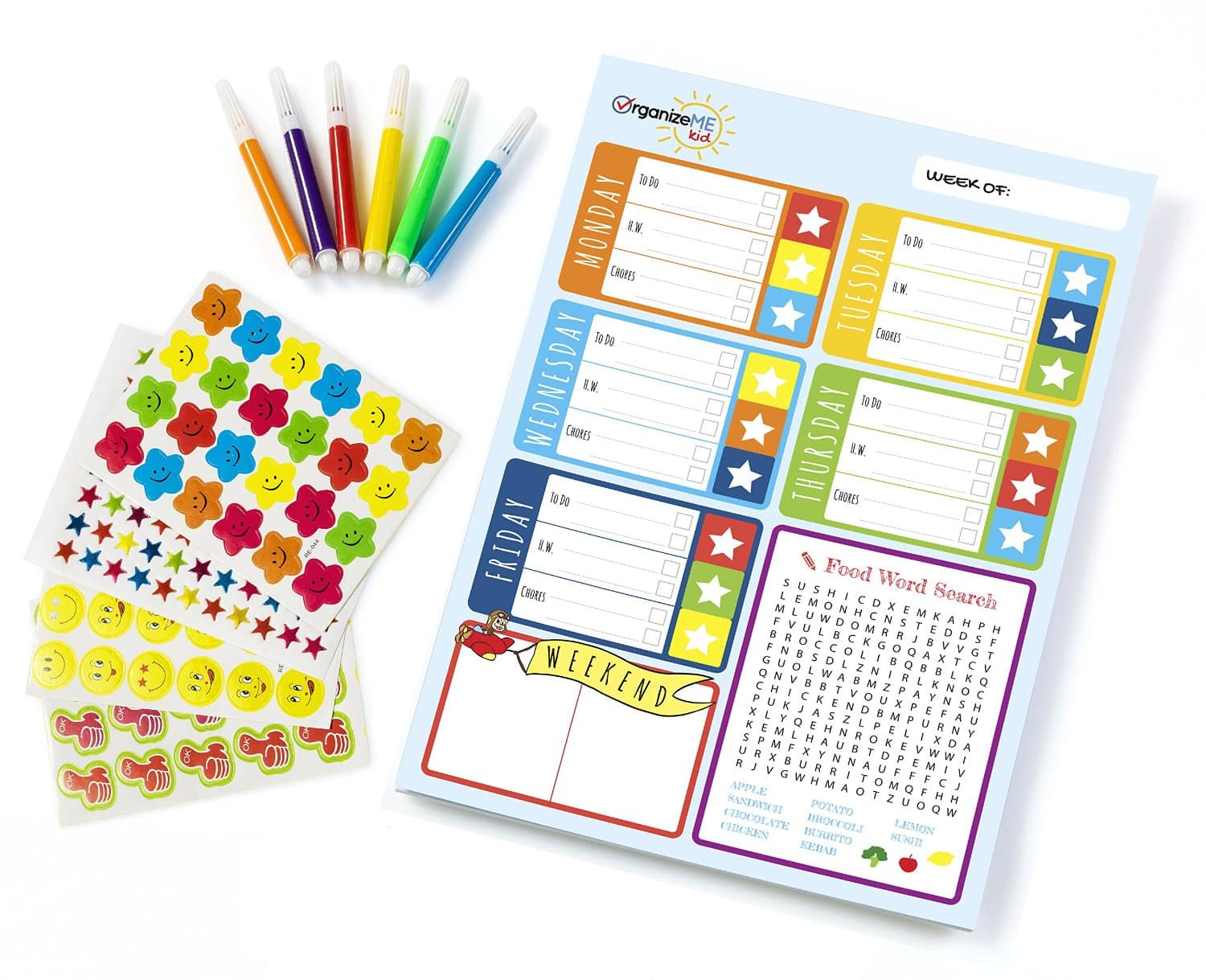When Saving Money Doesn’t Pay
We’re moms: Saving money is usually part of our job description.
And there’s no shortage of information out there to help us when it comes to frugal living! We are inundated with advice for how and when and where to save money on cars, clothes, breakfast cereal, and shampoo. The internet, news media, libraries, and bookstores are chock-full of information about saving for retirement, for our kids’ college, for our dream vacation.
If a woman can somehow avoid information overload, then she’s sure to glean some very valuable information.
And yet I’m not so sure we always process the deluge of information effectively. In our desperate (albeit well-intentioned) quest to save money, sometimes we end up making decisions and engaging in practices that actually cost us more than they save us, whether financially or otherwise, all the while smugly believing in our heart of hearts that we’re doing something good for our family.

Frugal living and planning for the future are very good things, but occasionally evaluating the true benefit of our efforts is important. Honestly, there are times when saving money just doesn’t pay. And here are a few cases where that is true:
1. When saving money makes me a stingy giver:
Some of the most frugal people I know are also some of the most giving, so I never want to imply that stringent savers are tightfisted and ungenerous. But it is possible for our good habit of penny-pinching to develop into a bad habit of stinginess. If I’m so obsessed with saving for a future vacation or tucking money away for my retirement that I can’t be openhanded enough to support a worthwhile ministry, a favorite charity, or someone in real need, then I’m actually depriving myself and my family of potential blessings. There are lessons to be learned and wisdom to be gained from giving that will never come from saving, and I don’t want to miss out on them.
2. When saving money consumes valuable time:
As they say, time is money. It’s a valuable commodity–easily expended and completely unrenewable. All our money-saving efforts should be critically evaluated in light of the time they demand of us.
I dropped couponing for just that reason. As much as I liked saving money, finding and clipping and organizing coupons became a time vacuum for me until I finally decided my time was worth more than the money I was saving. For some moms, couponing is a hobby, something they thoroughly enjoy, which makes it doubly worthwhile. For me, however, it was wasteful spending.
Whatever our particular money-saving strategies may be, it’s important to weigh out the money we’re saving versus the time we’re spending to see if our efforts are really worthwhile.
3. When saving money is costing money:
In the days before price-matching, I remember well how my dear mother dragged me all over town to take advantage of every sale at every grocery store within a 20 mile radius. It was torture for me, (and likely for her, too, I realize now,) and no doubt what she saved on groceries was spent in gasoline! She meant well, but her strategy wasn’t well thought out.
If coupons prompt us to buy things we wouldn’t buy otherwise, if clearance rack prices only drive us to buy more clothes than we can ever wear, or if we save by buying in bulk, only to throw half of it away because we couldn’t use it by its expiration date, then maybe we’re not really saving money. Or if we are, we aren’t saving much.
4. When saving money drives me to buy poor quality:
Just because an item is expensive doesn’t mean it is of good quality, and sometimes less-expensive versions of the things we want and need prove to be just as good and functional and long-lasting as their pricier counterparts.
But that said, lower priced items are usually of lower quality. Nothing ever taught me this lesson so well as the time I bought cheap tennis shoes for my daughter. They lasted exactly one week. One week. I was furious, (and a little embarrassed at myself,) but I learned that sometimes spending more saves more in the long run.
5. When saving money negatively affects relationships:
It’s very common in marriage relationships for one spouse to be very frugal while the other is a spendthrift. Sometimes the more money-conscious spouse has the difficult job of delicately, (or maybe not so delicately,) tempering the spending of the husband or wife. It’s tough love, certainly, but it’s necessary at times.
It’s also important, however, to consider how our frugality (especially when it turns into hyper-frugality!) affects those around us.
Personally, nothing makes me feel so much like I’m wasting money as eating out. I hate paying so much for something that lasts such a short amount of time.
But my husband really enjoys eating out. He likes the variety it offers, and he likes the fact that I’m not spending hours in the kitchen in meal prep and cleanup. We still don’t eat out a lot, but when we do I’ve learned to stop obsessing over every dollar we’re spending. When we have the extra money, if my husband wants to spend some of it getting a burrito from his favorite restaurant, he should be able to do that without me reminding him every 5 minutes what it’s costing us.
Children, too, need to be taught the value of a dollar and the importance of budgeting, but I once heard a wonderful Christian financial advisor warn against being a “NO parent,” so strict in our effort to save money that we’ll never allow the kids a random ice cream cone, even on half-price night, or we’ll refuse to let our teen join her friends for an impromptu ice skating trip, just because that extra $6 wasn’t in the budget. Granted, sometimes the money for extra treats or activities just isn’t there and saying no may be necessary, but it’s also important not to develop a financial philosophy of NO, where the bounds of our precious budget becomes more important to us than the people we love.
——————————-
Saving money is biblical, practical, and rewarding. We’ve likely all made mistakes in our efforts for frugal living. And certainly that should never push us to stop trying! But it’s important, too, to diligently ensure our every money-saving effort is paying off in the end.
Have you ever discovered areas where your money-saving was costing more than it saved? What good-sense saving strategies do you practice in your family?








COUPONING! I used to do it, then realized I was rarely using them, and clipping them just became “something to do”. I’d rather shop at Aldi’s then coupon and price match. I do still tend to get the paper once a month on P&G day because I use the coupons on some household items.
I also second price mathching. That is something I never started because quite frankly, dragging multiple kids into multiple stores causes multiple stressors. For me AND the store employees 🙂
Agreed, Misty! I decided a long time ago I couldn’t do that in-and-out at a dozen stores thing! It wasn’t good for my sanity, even WITHOUT children in tow!
And I pull out a coupon every once in a while to give my frugal side a little ego boost! 😉 Usually they’re just register coupons, but they can add up. I don’t have time to the major clipping and organizing, even the coupon “clipping” you do online. Too much time gets wrapped up in that!